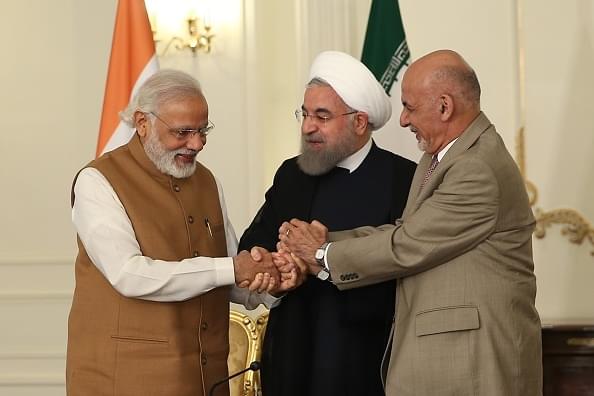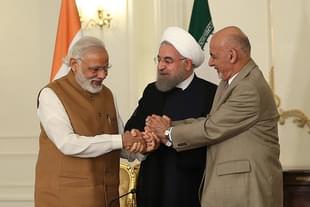World
Why The Chabahar Treaty Is A Game Changer For India, Iran And Afghanistan
Swarajya Staff
May 25, 2016, 02:30 PM | Updated 02:30 PM IST
Save & read from anywhere!
Bookmark stories for easy access on any device or the Swarajya app.


- The Chabahar Treaty aims to create a free-trade corridor of road and rail networks from the Chabahar Port in Iran to Afghanistan.
-
The treaty corridor aims to bypass Pakistan, but it will also reduce distance, time and cost for trade through the three countries.
-
The Chabahar Treaty will clear the way for India to build an infrastructure network of its own in the region to counter China’s initiatives.
Prime Minister Narendra Modi signed the trilateral Chabahar Treaty in Teheran this month, along with representatives from Iran and Afghanistan. The treaty aims to create a free-trade corridor of road and rail networks from the Chabahar Port in Iran to Afghanistan. The Chabahar Port is Iran’s only port with direct access to the ocean and will be developed by India for $500 million. In addition, India will also help develop the 500 km long Chabahar-Zahedan railway line.
The treaty corridor aims to bypass Pakistan, which formerly held the only passage available for trade from India to Iran and Afghanistan. But it will also reduce distance, time and cost for trade through the three countries. Union Road Transport and Highways and Shipping Minister Nitin Gadkari said, “The distance between Kandla (in the Kutch district of Gujarat) and the Chabahar port is less than the distance between New Delhi and Mumbai.” He added, “Investments of more than Rs 1 lakh crore can happen [through] the Chabahar free trade zone.”
But the story doesn’t end in Afghanistan. Through the project, goods will also travel to Central Asia and Russia, along the planned International North-South Transport Corridor. This would strengthen trade for all three countries with energy-rich nations in Central Asia, and particularly help India as it looks to diversify its sources of energy away from the Middle East.
The Chabahar Treaty is also seen as a counter to the China-Pakistan Economic Corridor (CPEC), part of the China-led Silk Road, which will connect China’s restive northwestern Xinjiang region with Pakistan’s Gwadar port on the Arabian Sea. The CPEC has drawn objections from New Delhi, following official announcements that a significant part of the corridor will pass through the disputed region of Pakistan-occupied Kashmir (PoK).
New Delhi’s objection to the CPEC has also seen it stay away from participating in the Silk Road initiative, hinting at the project’s geopolitical overtones. The Chabahar Treaty will clear the way for India to build an infrastructure network of its own in the region to counter China’s initiatives. In addition, India also hopes that the Chabahar project will reduce the impact of the Silk Road in the region.





